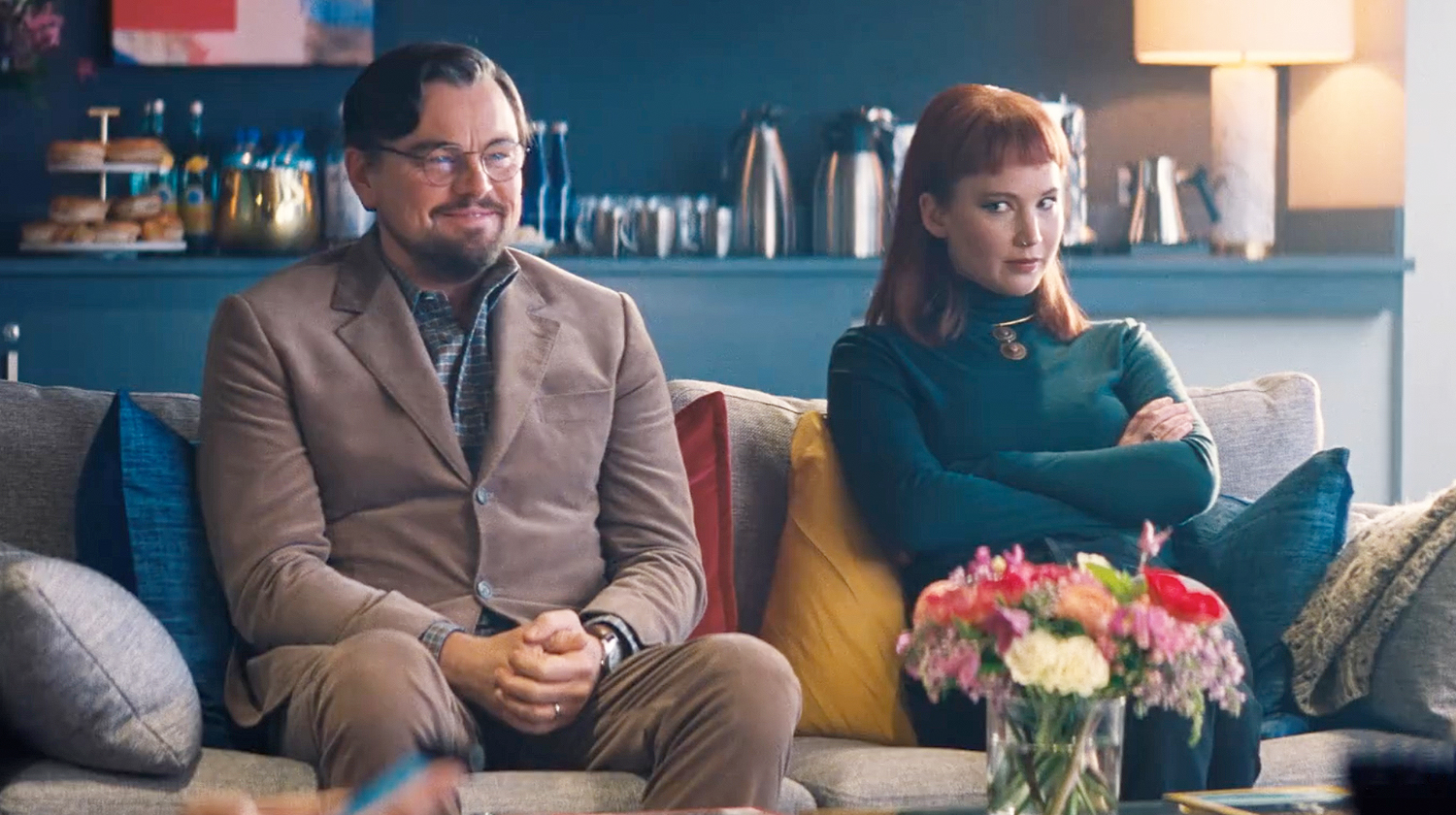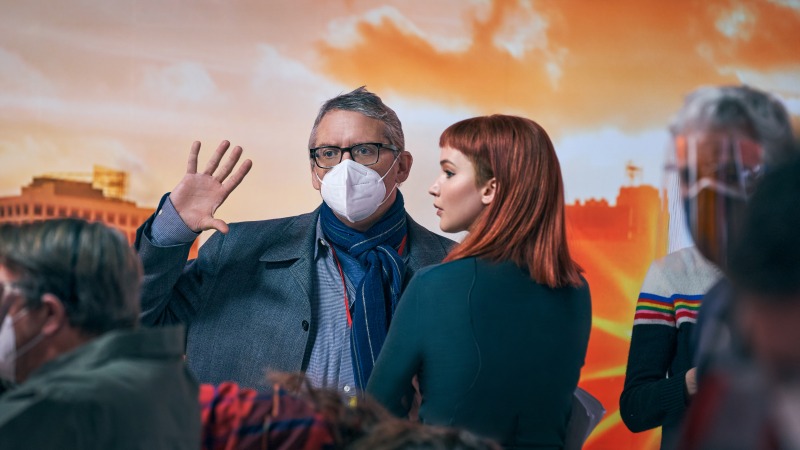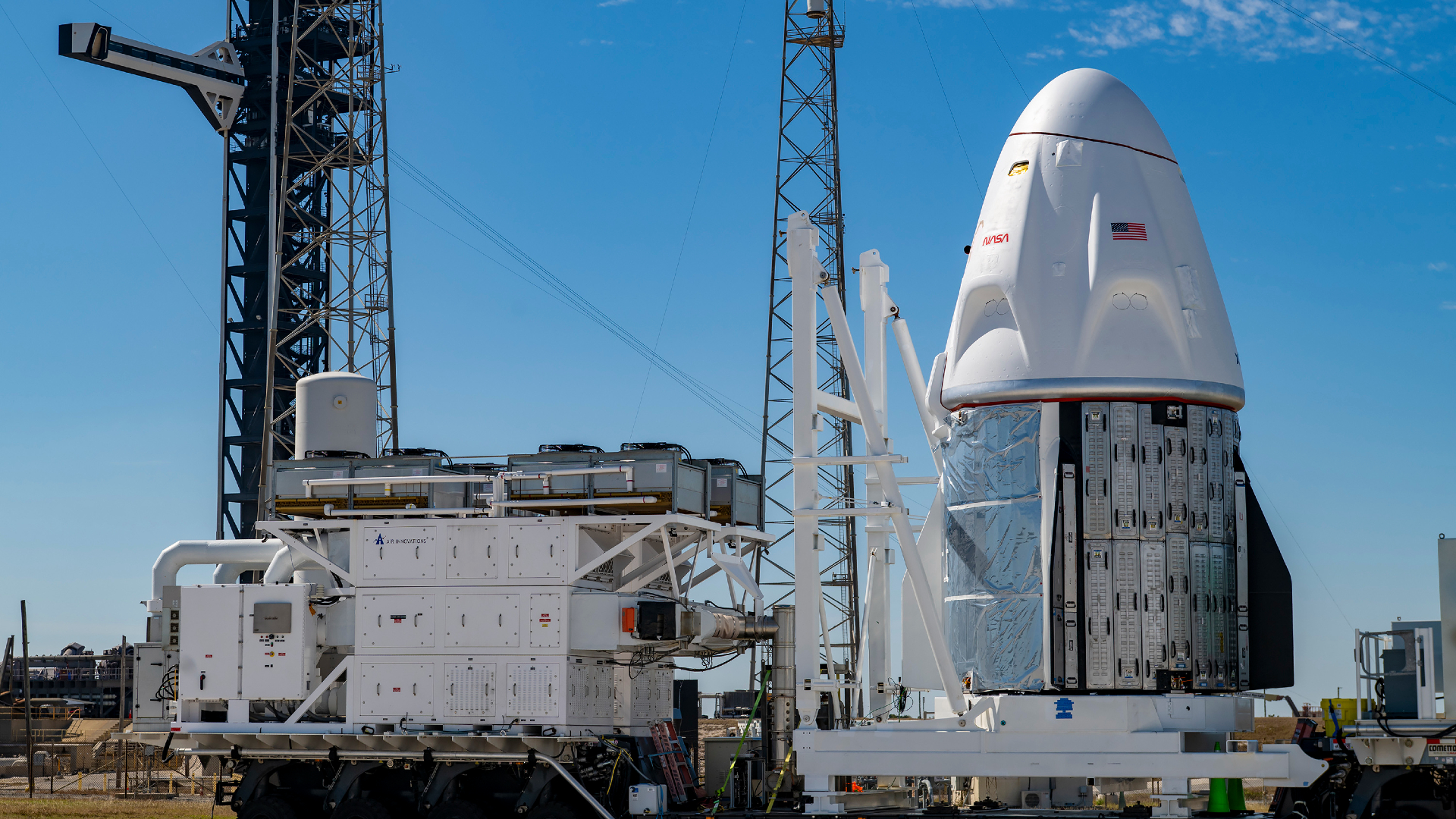Asteroid scientist Amy Mainzer talks space rock impacts and Netflix's new movie 'Don't Look Up'
She gave Leonardo DiCaprio advice on what scientists do next after delivering bad news.

Breaking space news, the latest updates on rocket launches, skywatching events and more!
You are now subscribed
Your newsletter sign-up was successful
Want to add more newsletters?

Delivered daily
Daily Newsletter
Breaking space news, the latest updates on rocket launches, skywatching events and more!

Once a month
Watch This Space
Sign up to our monthly entertainment newsletter to keep up with all our coverage of the latest sci-fi and space movies, tv shows, games and books.

Once a week
Night Sky This Week
Discover this week's must-see night sky events, moon phases, and stunning astrophotos. Sign up for our skywatching newsletter and explore the universe with us!

Twice a month
Strange New Words
Space.com's Sci-Fi Reader's Club. Read a sci-fi short story every month and join a virtual community of fellow science fiction fans!
Asteroid scientist Amy Mainzer found herself in a unique position these past few months: chatting with Leonardo DiCaprio about science and asteroids.
Mainzer served as the science advisor for Netflix's new film "Don't Look Up," a comedy-disaster film that is set to release in theaters on Dec. 10 (and on Dec. 24 on Netflix). This movie follows a long legacy of films that feature space rocks threatening Earth, like 2020's "Greenland," 2012's "Seeking a Friend for the End of the World" and the famous 1998 duo: "Deep Impact" and "Armageddon."
An official trailer for "Don't Look Up" from September showed DiCaprio (who plays astronomer Randall Mindy) and Jennifer Lawrence (who plays astronomer Kate Dibiasky) trying to convince fictional White House officials that there's a giant comet headed straight for Earth. A skeptical Jonah Hill (chief of staff Jason Orlean) tells the duo that he regularly hears end-of-the-world scenarios and they're "so boring."
"I hope people realize this isn't really just a disaster movie, but it's really more of a commentary on how we react when we hear news we don't like or don't want to know," Mainzer told Space.com.
Related: NASA's DART asteroid-impact mission explained in pictures
- Empty list




In addition to her occasional work as a science advisor (which extends to the PBS Kids show "Ready Jet Go!"), Mainzer is a professor at the Lunar and Planetary Laboratory at the University of Arizona and the principal investigator of NASA's NEO Surveyor mission, a mission is set to launch in 2026 to look for asteroids. Mainzer is also the principal investigator of NEOWISE, the asteroid-hunting phase of NASA's Wide-field Infrared Survey Explorer mission.
With "Don't Look Up," Mainzer worked with the cast and crew, first explaining the technical aspects of asteroids. She explained how scientists catalog and track thousands of these rocky worlds, but regular scans of the sky have shown no imminent threats to Earth.
Breaking space news, the latest updates on rocket launches, skywatching events and more!
Director Adam McKay ("Anchorman" and "The Other Guys") also quizzed Mainzer about the work of scientists, she said. "When we're learning things that are both good news and bad news about science, he really wanted to kind of get inside the minds of scientists and try to understand, how do we think? And how do we try to communicate what we've learned to everybody else?" Mainzer said.
Mainzer added that she emphasized to the team that scientists are just human beings trying to do their best in making science-based decisions, and trying to help society to also make tough, science-based decisions. The movie, she said, shows how we listen to what scientists are saying, and how we interpret that information, especially when it comes to "bad news."
"It is a comedy. It's meant to kind of poke fun about a lot of the ways that these communications work and don't work. It's hopefully a movie that will make you laugh and make you think, and hopefully, it will stick with you in good ways," Mainzer said.
She added that she hopes (and expects, based on seeing the movie) that even audiences who may not know much about asteroids or space will still be able to take that message away. "Science tells us what we're learning about the world, the physical properties of the world, the way the laws of physics work around us, right? But the arts, they help us interpret our feelings about what we're learning. That's also important because we're human beings, and we have feelings about these things," she said.
In her work on the movie, Mainzer had many conversations with cast members, sometimes even by text or Zoom. Much of her time was spent working with DiCaprio, an actor whose storied career spans from historical drama-comedies like "Django Unchained" (also a commentary on racism and slavery) to biopics like "The Aviator" (which followed the life of Howard Hughes, including the business magnate's mental illness.)
Related: The Greatest Comet Close Encounters of All Time
Chatting with DiCaprio
With DiCaprio, Mainzer focused on explaining what happens when a scientist may be faced with bad news.
"There's always a sort of a dichotomy about what do you do about the things that you're learning," Mainzer said, relaying what she said to him. "Do you try to work within the system? Or do you try to fight the system? We had a lot of really good conversations about that: What does it mean to try to affect change when you know something?"
There's a balance between telling a Hollywood story while respecting truth and reality, and the long list of asteroid and comet films over the decades showcase the many attempts at finding that balance. "Armageddon", for example, has been notorious amongst sci-fi fans for how badly it got the science wrong, although the film was praised by astronomer Phil Plait for its entertainment value. By contrast, "Greenland" director Ric Roman Waugh did his own research into the science of comets, going as far as speaking with asteroid researchers at NASA's Jet Propulsion Laboratory to verify his work.
Mainzer pointed out that the new film obviously deviates from reality fairly immediately as it portrays a threatening comet quickly barreling towards Earth, which is something humanity never has had to deal with on such a large scale. "It may be hard to extrapolate [reactions] to a worst-case scenario," she acknowledged, adding that scientists also have challenge of dealing with uncertainty because the entire asteroid population is not known.
In real life, the system of discovery is very transparent, she said. Observations of asteroids and comets are immediately relayed to the Minor Planet Center, an official body of the International Astronomical Union. The center uses automated software to "connect the dots and see if something is a potential new discovery," she said, and new entrants are posted to the Internet publicly in no more than a few hours both at MPC and at this JPL website.
"Then we start to get a 'dog pile' to get as many observations of a particular object we can," Mainzer said of the astronomy community, referring to the rush of excitement for telescope time that ensues to verify the orbit of the new object. Naturally, updates are posted publicly as soon as they are verified.
A good example of this system at work occurred in 2008, when a very small asteroid called 2008 TC3 was discovered and found to be on an impact trajectory with Earth within 24 hours, Mainzer said. It was the first object ever to be found before hitting our planet and, in the brief time after it was posted online, hundreds of observers contributed observations.
One of the most notable space rock observations came from two airliner pilots: KLM airline captain Ron de Poorter and co-pilot Coen van Uden. During their flight KL-592 flying over Chad, they were alerted by their company to keep an eye on the horizon and they radioed back their observations, comparing the flashes they saw "to artillery fire or distant lightning," an Air&Space Magazine report from the time said. Mainzer added in her Space.com interview that such participation from amateurs shows "the system has been set up to be transparent, and it has been exercised."
While the movie pokes fun at everything from how scientists react to bad news (DiCaprio showcases some seriously exaggerated hyperventilating through much of the trailer from September) to how public officials may not understand such threat despite the evidence, Mainzer said her goal as a scientist is always to show those in power "how to take action based on our scientific recommendations."
You'll have to watch the movie to see how well the scientists succeed in that endeavor, she added that it's clear the fictional astronomers are following what the science is telling them and, like herself, "they don't have a choice" in doing so.
"Science is happening to us whether we like it or not, so it's in our best interest to respond, making decisions that take into account the laws of physics," she said.
Follow Elizabeth Howell on Twitter @howellspace. Follow us on Twitter @Spacedotcom and on Facebook.

Elizabeth Howell (she/her), Ph.D., was a staff writer in the spaceflight channel between 2022 and 2024 specializing in Canadian space news. She was contributing writer for Space.com for 10 years from 2012 to 2024. Elizabeth's reporting includes multiple exclusives with the White House, leading world coverage about a lost-and-found space tomato on the International Space Station, witnessing five human spaceflight launches on two continents, flying parabolic, working inside a spacesuit, and participating in a simulated Mars mission. Her latest book, "Why Am I Taller?" (ECW Press, 2022) is co-written with astronaut Dave Williams.
